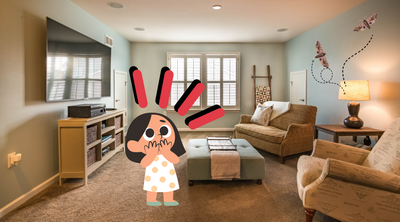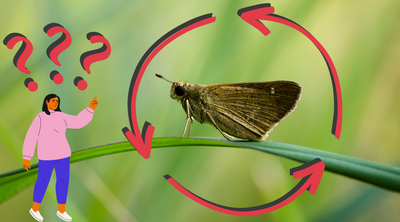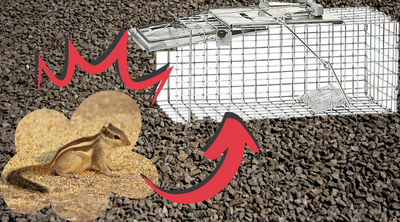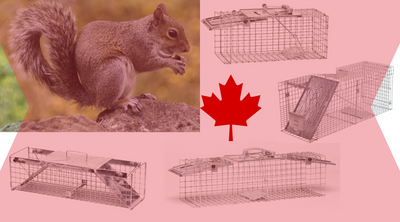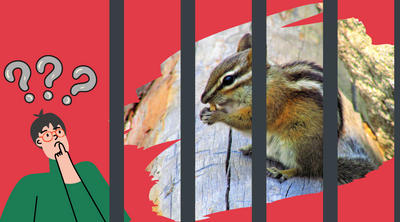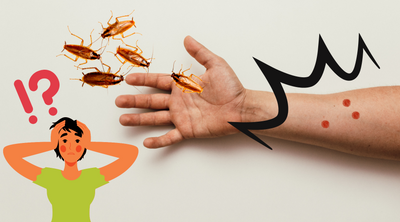Some species of spiders such as the wolf spider don’t build webs and are free roaming. Others like the cellar spider build webs to catch their prey. Most spiders are beneficial because they eat other household pests such as flies and are harmless because their fangs are too weak or small to puncture your skin.
Those that can bite humans usually won’t do so, unless they’re threatened or harmed. The brown recluse spider and the black widow are potentially dangerous. Many people don’t want to live with spiders. Spider webs, discarded prey, and fecal spotting can become an unpleasant nuisance as well.
Here are some tips on how to control spiders.
- Consider installing sodium vapour or yellow light bulbs at outside entrances because these light bulbs are less attractive to night-flying insects. Your home won’t be attractive to spiders.
- Install tight-fitting door sweeps and window screens to exclude pests.
- Routine house cleaning can help eliminate and discourage spiders from returning to your house. A broom or vacuum cleaner effectively eliminates spiders, egg sacs, and webs. Destroying egg sacs is important because a sac can contain a large number of young spiders.
- House spiders love quiet, untouched areas like attics, closets basements, and garages. Reduce or get rid of clutter in these spots.
- A large number of spiders frequently flock around building exteriors. Move debris, firewood and stacked items away from your home’s foundation to prevent spiders from migrating indoors.
- Trim tree limbs, shrubs, and vines touching your home because these spots can provide them harborage.
- You can also apply insecticides around the building’s perimeter. This will serve as a barrier spray to prevent spiders from entering your home. Pay attention to crawlspace entrances, storage areas, door thresholds, foundation vents, and garage.
- Products that contain deltamethrin, lambda-cyhalothrin, bifenthrin, or cyfluthrin are effective. However, it needs to be applied periodically such as bi-monthly or monthly during warmer months of the year.

Brown Recluse Spiders
Recluse spiders are often confused with harmless brown spiders. It is dark brown or dark cream in colour. Their abdomen is darker than the rest of their body. Brown recluse spiders have a violin-shaped marking on the fore-section of their body.
This is why they are also called violin or fiddle spiders. Brown recluse spiders have three pairs of eyes and roam at night to look for mates and prey. They usually hide in concealed places during the day. Their web looks like a mat.
Brown recluse spiders are shy and usually retreat once disturbed or threatened. People may be bitten while wearing a piece of clothing or shoe where a spider is staying. A brown recluse spider’s bite is generally painless until 3 to 8 hours later when it becomes tender, red, and swollen.
The red spot around the bite may eventually become an ulcerous sore. Immediate medical attention can help reduce the degree of ulceration as well as other complications that may occur.
Healing often takes a month or longer. Those who think that they’ve been bitten by a brown recluse spider should try to get and bring the specimen to an expert for identification. Proper identification will help the doctor decide on the right course of treatment.
Black Widow Spiders
Adult female black widow spiders are shiny black, about 1/2" long and have a red hourglass marking on the underside of their abdomen. The hourglass marking in some juvenile spiders and varieties may appear as reddish spots on the upper or lower surface of their abdomen.
Black widow spiders spin loosely organized cobwebs. They usually dwell outdoors under yard debris, rocks, or boards. When they are discovered indoors, they’re typically seen in outbuildings, sheds, garages, and vestibules.
Black widows are shy and only bite when they are injured or feel threatened. The venom of a black widow is a nerve toxin. The victim’s body temperature and blood pressure may rise. Nausea, sweating and localized swelling may occur.
Their victim may also go into convulsions twelve to twenty-four hours after being bitten by a black widow and die if prompt medical attention is not given. This rarely happens. First aid involves cleaning the bite site and applying a pack of ice to slow venom absorption. An antivenin is available for serious cases.
How to Control Black Widow and Recluse Spider Infestations
Inspect the cracks and crevices and other undisturbed areas of your home with a bright flashlight to determine the extent and location of spider infestation. Black widow and brown recluse spiders build irregular webs.
Installing glue traps is an effective way to determine hidden infestations. You can buy sticky cards at farm or hardware supply stores or online. Place the sticky cards in the corners of your room and along the base of the walls. The traps will catch wandering spiders.
Wear a pair of heavy gloves when moving or touching potentially infested items or inspecting inside containers. You can also use residual insecticides. There are sprays available for controlling cockroaches, ants, spiders and other crawling pests.
Treat all spots where the spiders are living. Pay attention to crevices along with windows and baseboards, rafters and joists in basements garages, attics, and crawlspaces.
How to Sanitize Your Home after an Infestation
The cleaning process doesn’t take a lot of effort and time. Vacuum the spiders and droppings and clean the surface with warm water and soap. Clean your home after an infestation to eliminate bacteria and germs.
Specialized equipment and skills are often needed for dealing with a black widow or brown recluse infestations. After dealing with an infestation, it is crucial that you have your home cleaned and sanitized to avoid attracting the same spider species or other pests in the future.
Though you can do mostly of the cleaning and sanitation, it will usually take time and effort. If you think you can’t allot enough time to complete the job thoroughly, you can always contact an expert. You may want to hire a pest control company to get rid of spiders for you.



